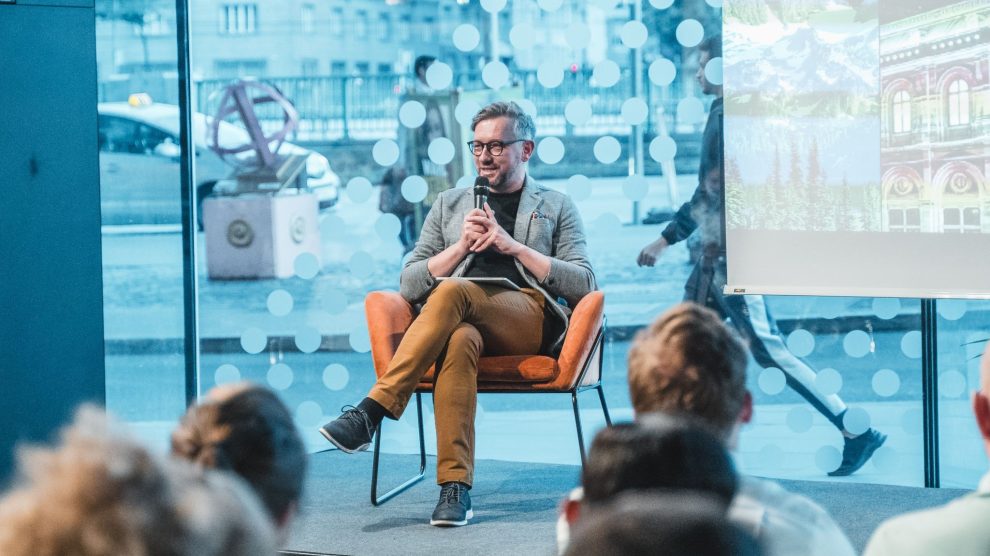While the start-up world glorifies success and rapid growth, it’s crucial to acknowledge and discuss the hidden toll of burnout that often accompanies these achievements.
In the start-up world, success is celebrated with a loud and relentless fanfare. We are constantly inundated with stories of groundbreaking funding rounds, disruptive innovations, and unicorn valuations. Investment deals are glorified, opportunities appear endless, and founders are hailed as modern-day heroes.
The narrative is intoxicating: raise capital, scale fast, and bask in the glow of overnight success. But beneath this glittering surface lies a harsher reality.
- Time for investors to take a closer look at the digital transformation in CEE
- The view from Chișinău: Digital Moldova is real
- Georgia’s Golden Fleece of entrepreneurs and start-ups
Earlier this week, I joined Visionary Minds: From Expected to Explosive, an event organised by Tereza Reh and Michael Chaffe, who are launching the Alpha Omega Foundation in 2025, to highlight the role of mindset for those spearheading innovation and creating innovative solutions.
Why? Because the pressure to secure funding, meet investor expectations, and stay ahead of the competition often leads to a hidden toll—one that the start-up culture conveniently overlooks: burnout.
The impetus for the foundation itself comes from Michael and Tereza’s own experiences tackling burnout and other challenges connected with the entrepreneurial path.
I got a chance to share my own experience and challenges as an entrepreneur: building a proper corporate structure, creating solutions that respond to the needs of clients not only beneficiaries or identifying clients who can buy solutions that beneficiaries need, attracting and retaining excellent, high-skilled talent and growing.
Surviving burnout
Dissecting a burnout, from diagnosis to treatment and eventually survival, was the focus of a fireside chat that I hosted with Sasha Lipman, the original founder of tech2impact, who had been through just such burnout.
She had been through it all. Long hours and the pressure to perform at every turn left little room for rest, pushing her into a state of perpetual exhaustion. The passion that once fuelled her mission started to fade, replaced by a sense of burden and disengagement. She found herself isolated, carrying the weight of responsibility alone. This loneliness amplified the mental strain, making it harder to seek support or even admit to struggling.
Perfectionism and the fear of failure only intensified the pressure, leading to a cycle of dissatisfaction when unrealistic expectations aren’t met. Over time, the physical and emotional toll became undeniable, manifesting in anxiety, depression, insomnia, and even more severe health issues.
She started therapy that helped her see things from a different perspective. She talked about prioritising balance and self-care, setting boundaries by scheduling time for rest, hobbies, and personal relationships, delegating tasks and building a reliable team as that can reduce the burden of responsibility. She was later joined — as the other co-founder — by Petra Capin, who is more specialised in balanced life and well-being.
We then talked about mindfulness, relaxation, seeking support from peers, mentors, or professional networks to share struggles and advice. By proactively managing these areas, founders can safeguard their health and sustain their passion for the long term.
I explained how I deal with some of these challenges on a personal level – by running a journal, as for me, putting thoughts in writing puts them in order and adds perspective (by the way, I run a digital journal but I don’t type my thoughts, instead writing them out by hand. I find it extremely important.)
Ultimately, while the start-up world glorifies success and rapid growth, it’s crucial to acknowledge and discuss the hidden toll of burnout that often accompanies these achievements. Focusing solely on success overlooks the importance of founder well-being, their mindset, which are essential for sustaining both personal health and long-term business success.
Unlike many news and information platforms, Emerging Europe is free to read, and always will be. There is no paywall here. We are independent, not affiliated with nor representing any political party or business organisation. We want the very best for emerging Europe, nothing more, nothing less. Your support will help us continue to spread the word about this amazing region.
You can contribute here. Thank you.


